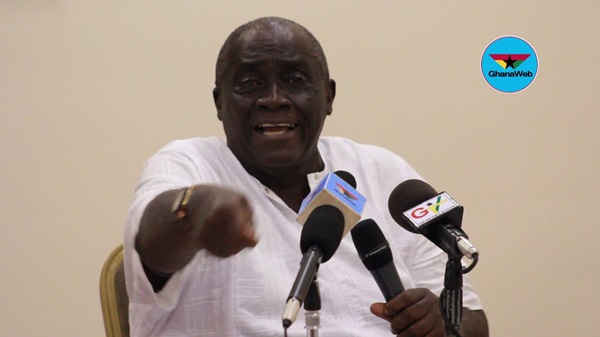
Boycott FIFA-organised matches if taxpayers can't decide FA president
Experienced football administrator, Nana Fitz, has strongly criticised FIFA, urging the global governing body to permit Ghanaians to have a say in the election of the Ghana Football Association (GFA) President.
Fitz argued that the significant support from Ghanaian taxpayers in funding coaches and players for the national team warranted their involvement in key decision-making processes such as who must be given the nod to manage affairs of football in the country.
Speaking candidly to Graphic Sports after the Black Stars' disappointing 1-2 loss to Cabo Verde in the Africa Cup of Nations (AFCON) tournament, Nana Fitz emphasised the necessity for a comprehensive overhaul of football management in Ghana.
He believes that this change is crucial to addressing the poor performances of the national team on the international stage.
The administrator expressed disappointment with FIFA's decision to exclude government influence in decisions related to the management of the national team.
"I want to call the attention of FIFA to take a second look at that arrangement because it is cheating," he stated and highlighted the contradiction of taking funds from Ghanaian taxpayers for the team's operations but denying them a voice in important decisions.
He warned that if FIFA did not reconsider its stands on this then Ghanaian football fans should consider a massive boycott of all FIFA-organised matches.
This, according to him, would send a powerful message to FIFA, expressing the dissatisfaction of the Ghanaian football community with the current system.
The seasoned football administrator advocated a return to the old system where the government played a role in appointing FA presidents. He criticised the current arrangement, stating that it had created a situation where a select group operated without sufficient accountability.
He further accused some members of the GFA of having conflicts of interest. He pointed out that many owned clubs and managed players, potentially using their influence to secure spots for their players in the national team.
Drawing a parallel with the British FA, he emphasised that executives there did not own or actively participate in football clubs yet, they were able to manage their football efficiently and called for a more serious and accountable approach to football administration in Ghana.
Fitz lamented the fallen standards of football in the country despite the substantial investments made, urging for a re-evaluation of the current system to bring about positive change.
